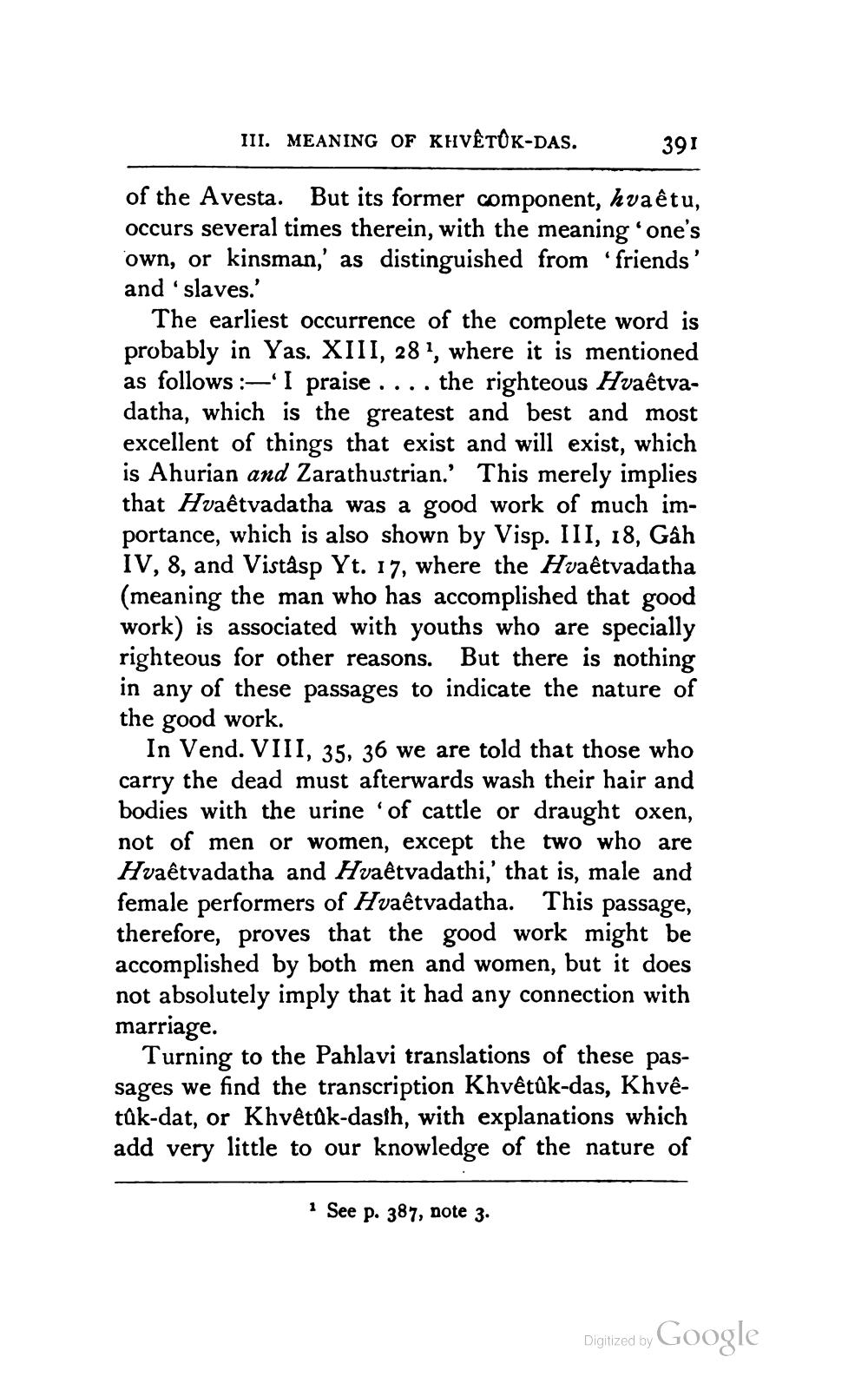________________
III. MEANING OF KEVÊTOK-DAS.
391
of the Avesta. But its former component, hvaêtu, occurs several times therein, with the meaning one's own, or kinsman,' as distinguished from 'friends' and 'slaves.'
The earliest occurrence of the complete word is probably in Yas. XIII, 281, where it is mentioned as follows :- I praise .... the righteous Hvaêtvadatha, which is the greatest and best and most excellent of things that exist and will exist, which is Ahurian and Zarathustrian.' This merely implies that Hvaêtvadatha was a good work of much importance, which is also shown by Visp. III, 18, Gâh IV, 8, and Vistasp Yt. 17, where the Hvaêtvadatha (meaning the man who has accomplished that good work) is associated with youths who are specially righteous for other reasons. But there is nothing in any of these passages to indicate the nature of the good work.
In Vend. VIII, 35, 36 we are told that those who carry the dead must afterwards wash their hair and bodies with the urine of cattle or draught oxen, not of men or women, except the two who are Hvaêtvadatha and Hvaêtvadathi,' that is, male and female performers of Hvaêtvadatha. This passage, therefore, proves that the good work might be accomplished by both men and women, but it does not absolutely imply that it had any connection with marriage.
Turning to the Pahlavi translations of these passages we find the transcription Khvêtuk-das, Khvêtûk-dat, or Khvêtuk-dasth, with explanations which add very little to our knowledge of the nature of
* See p. 387, note 3.
Digitized by Google




